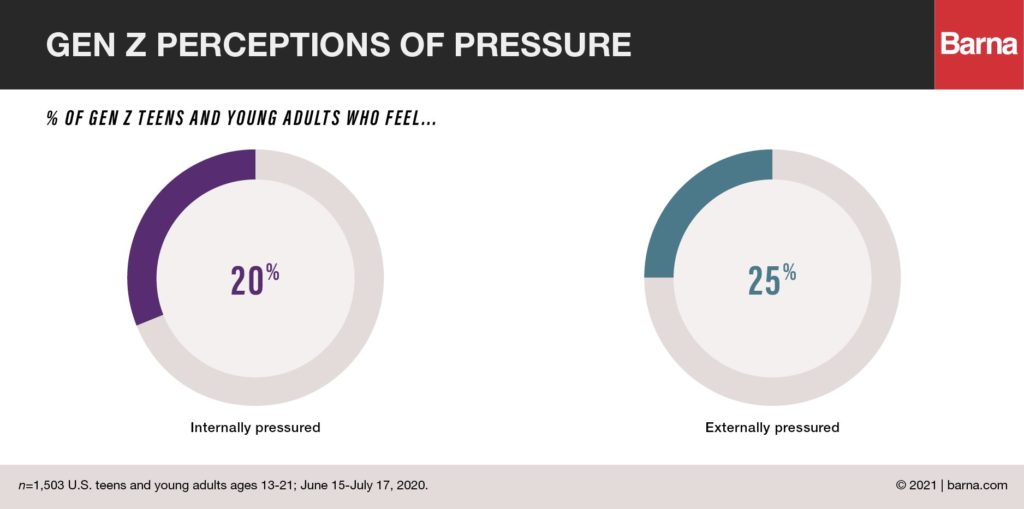How does Gen Z’s drive impact their overall well-being? Researchers found via factor analysis that many of the “how often do you feel…” statements asked within the 2020 survey trend together—meaning that if someone responds to statement A in a certain way, they are also likely to respond the same way to statements B, C and D. This approach enabled analysts to identify certain thematic elements related to feelings and well-being among Gen Z.
The first theme that emerges is the experience of pressure. In order to be considered either internally or externally pressured, respondents meet all of the following criteria
Those who are internally pressured always or usually feel:
- “pressure to be successful” and
- “a need to be perfect.”
Those who are externally pressured always or usually feel:
- “judged by older generations” and
- “pressured by my parents’ expectations.”
In all, about one-third (31%) can be categorized as “internally pressured” and one-quarter (25%) as externally pressured.” About two in five of all Gen Z (41%) qualify as at least one or the other. Feelings of pressure are consistent with Gen Z’s inherent drive, but the differing sources of this pressure are worth noting.

Today’s teens and young adults surely feel the weight of expectations from parents, teachers, and older adults—as many elder adults have felt before during this life stage—but an even larger proportion of Gen Z feels this weight from within. In relentlessly pursuing their aspirations, Gen Z needs wisdom to root their expectations of themselves in grace.
About the Research
Interviews for this study were conducted using an online consumer panel of 1,503 U.S. teens and young adults ages 13 to 21 between June 15 and July 17, 2020. Quotas and minimal weighting were used to ensure data are representative of known U.S. Census ethnicity, gender, age and region. Margin of error is ±2.53 percent.
